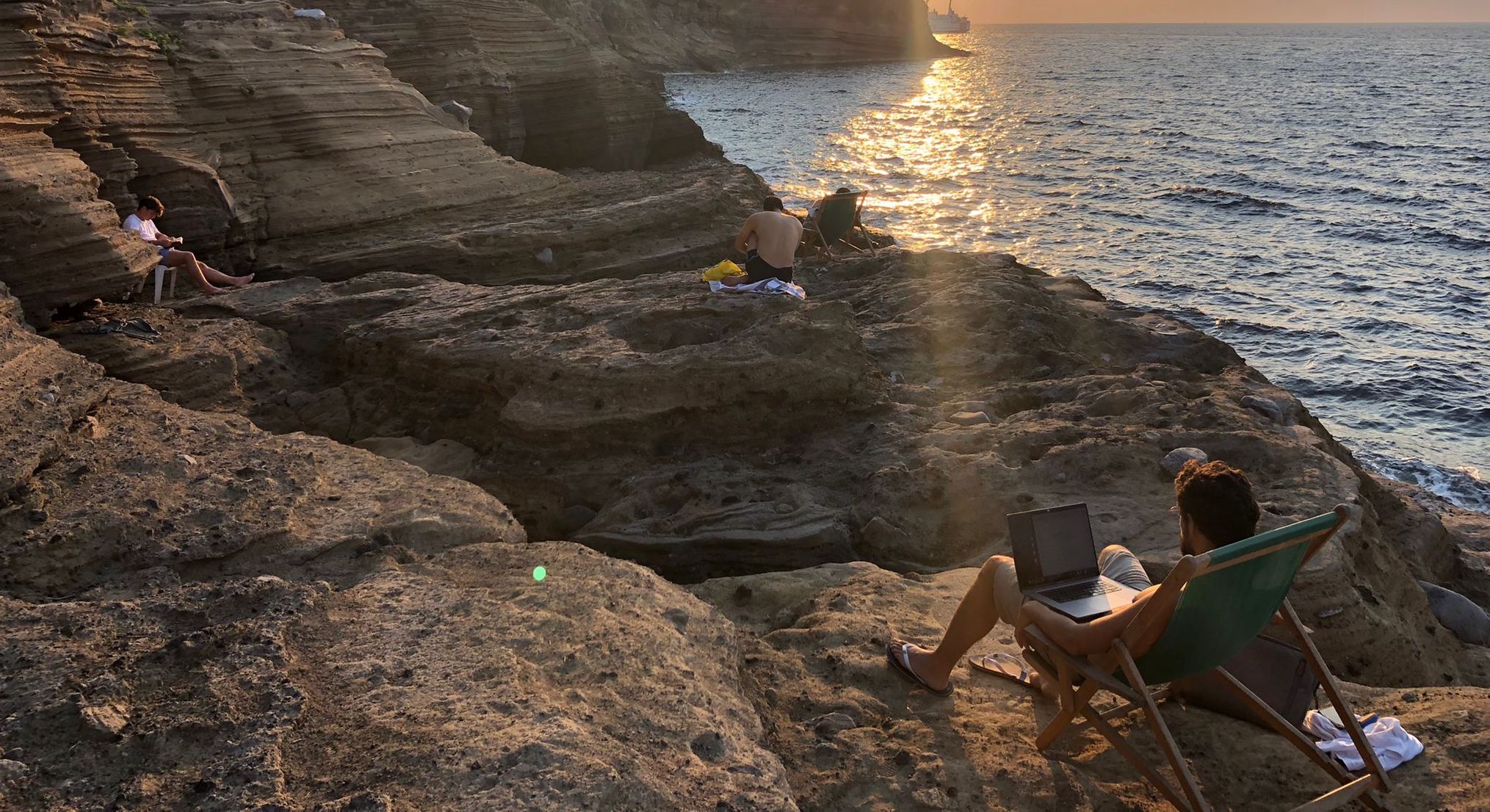My films always tell the stories of immigrants like Lorca (2012) where a teenager goes from Paris to Spain to rediscover her flamenco culture. I also manage a multicultural audiovisual NGO in Paris. I see more and more young people with two nationalities. They all question their identity but eventually learn that they are richer and stronger than others, they are more open-minded and they fit better into our global world.
The Green Shoes is about exactly that. It is a quest for identity and the search for one’s origin. Petra, a young Lebanese woman living in Paris, goes to see her boyfriend in Beirut. After discovering that he has betrayed her with her sister, she runs away to her father in the countryside. Shocked, she starts to analyse the notions of love and betrayal.
People she meets on the road feel for her and try to ease her pain by telling her stories, citing poems. Their compassion is contrasting to the indifference she knows in Paris. She discovers Lebanon as a country where poetry is culturally integrated into the minds whatever the tensions, and she learns how art can help one to live. At the end, she accepts her lost love and goes back with a better understanding of who she is and where she comes from, with a heart full of joy.
The costumes will be offbeat to characterize the protagonist’s propensity for the love of poetry. The light should emphasize them against the backdrop of raw Lebanese natural sets, to mark the differences between her inner state, “by moment wild, by others in fury” and the world around her in its daily activity. Slowly this gap will fade: while men and women help her to overcome her problems, her costumes will better match the beauty of the settings, as if she is discovering the beauty of the world. We will tell her story by following her journey through Lebanon. The distance in these shots will throw us emotionally into a poetic realm like in An Angel At My Table by Jane Campion.
We will also see Petra’s inner world through the images taken by her camera, accompanied by her questions to her lost lover, things she asks her father and herself about love and betrayal. I was born in Morocco, my mother is Spanish and I live in Paris. I know my main character very well. I know how it feels to deal with many cultures inside oneself and about the search for identity. I also believe that knowing your cultural backgrounds helps you to understand who you are and the world you are living. And that is what my film is about.
